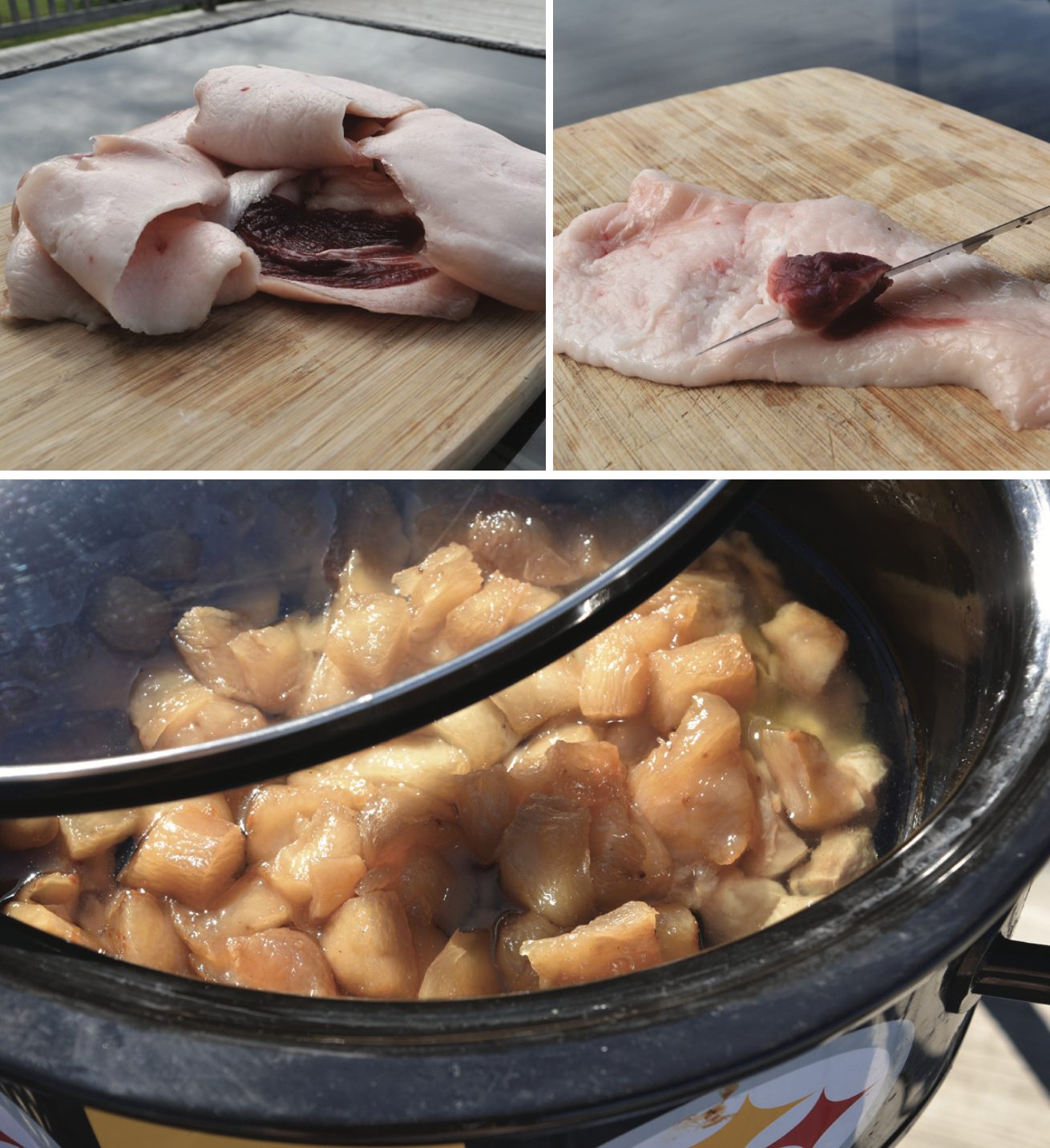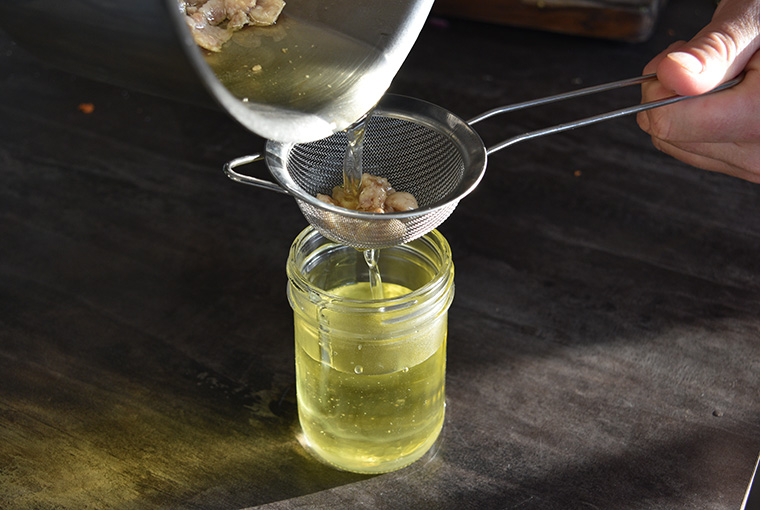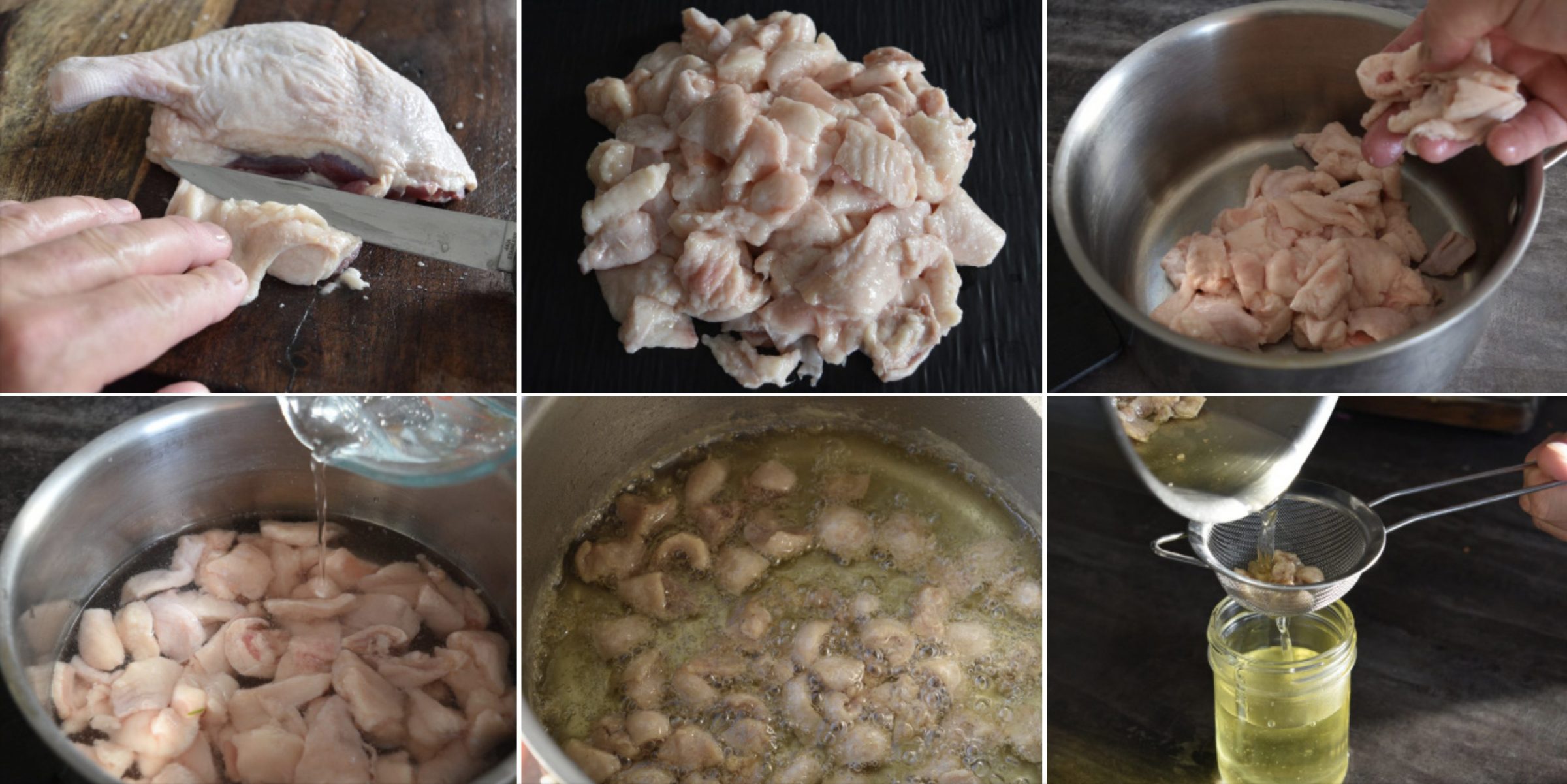Duck and goose
When geese and geese put together for his or her migration south, they replenish on high-calorie meals to construct up their fatty shops. I desire to hunt late-season geese (from December to early January) for that reason.
Getting the products
The 1st step, harvest a few geese or geese and absolutely pluck. This can assist you to establish the place the fatty areas, which makes them simpler to take away.
Geese and geese can have massive deposits across the legs, neck, and again. In case you desire to have skinless breasts, peel off that breast pores and skin because it incorporates the very best quantities. Some large late-season mallards can have good fats round a few of the inner organs as effectively, if you’re into maintaining these.
What to do
I desire to make use of a heavy-bottom pot for rendering duck and goose fats. Dice up your chilly fats and add it to the pot. Pour in simply sufficient water to virtually cowl the fats. Flip your range prime burner to medium. Simmer till water is evaporated and the yellowish fats begins to slowly bubble. This takes from 45 minutes to an hour. One other signal of readiness is when the small chunks of fats begin to tackle color and turn out to be crispy. These are like pork cracklings — scrumptious when dried with a little bit of salt!
As soon as barely cooled, pressure the fats by way of a positive sieve. This can make the tip end result good and clear with out containing any cooked particles. I like to retailer my completed product within the fridge in Mason jars. They’ll final months and can be frozen. The completed fats will probably be white with a slight tinge of yellow. In case you see brownish bits on the underside, that’s regular. It’s simply a few of the cooked items settling beneath the fats, like in case you had been to maintain bacon lard in a jar.
Bear
Congrats, you harvested a bear! Together with plenty of scrumptious meat for roasts, sausages, and burgers, you could have great wild-game fats. It’s similar to pork fats in odor, flavour, and look.
Getting the products
Bears are fatty creatures. Their our bodies can have as much as 40% physique fats, which helps them survive lengthy winters. Ontario’s bears are usually not fish eaters, so we’re lucky a weight loss program of blueberries and different forage makes their fats very impartial in flavour.
Any clear, white fats on a bear is nice for rendering. The rump, again, and neck have massive deposits.
What to do
Take away all chunks of meat and hair, as this may taint the completed product. As soon as it’s trimmed, I put it within the freezer for an hour earlier than slicing it into 1-inch cubes. Load your gradual cooker/crock pot three-quarters full. Cowl and prepare dinner on low for 10 hours. As soon as the fats has all rendered, pressure contents by way of a positive sieve and cheese material.
Like different fats merchandise, bear fats will final within the fridge for various months. You may hold it at room temperature, however not for for much longer than two weeks. If it begins to odor off, toss it out!

OK to eat?
Saturated fat, present in meat, cheese, some oils, like coconut and palm, and lots of commercially baked items can elevate blood ldl cholesterol and enhance the chance of coronary heart illness, however are OK when consumed sparsely. Duck incorporates roughly 30% saturated fats. Bear is barely increased, however each have lower than butter, which is about 50% saturated fats.
Deer and moose?
Deer and moose tends to be very gamey, with a lingering flavour that’s unappetizing to most hunters I communicate with. It coats the palate and makes it onerous to style different components. Traditionally, moose and deer fats has been utilized in different methods, akin to weather-proofing gadgets, treating leather-based, and making suet for birds. That stated, that is simply my opinion and there are some hunters on the market who do take pleasure in consuming it.
Andrew Rochon is OOD’s meals editor. You may observe extra of his culinary adventures on Instagram: @wilderness_chef
Initially printed within the August 2021 subject of Ontario OUT of DOORS journal.



